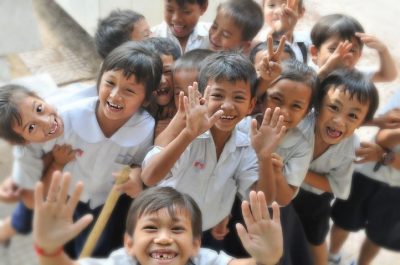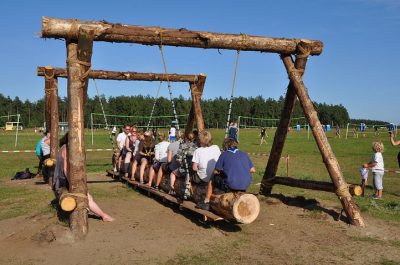Breakfast Club Blog

The BOOST Breakfast Club Blog is a curated space where bloggers from around the world contribute content on a continual basis about a variety of topics relevant to in and out-of-school time. The BOOST Breakfast Club blog is at the heart of an ongoing dialogue where expanded learning and education professionals share their personal thoughts and stories from the in and out-of-school time field. They also tell us what they ate for breakfast!
The BOOST Breakfast Club Blog is Brain Food for In and Out-of-School Time Leaders!
Interested in becoming a blogger? Email [email protected]
Click here to Register for a free account or click here to Login to your existing account.
Part 2 – How One After-School Program Prepares Students for the World
Asia Society and BOOST Collaborative are partnering to create a series of blogs on global learning in out-of-school time. Community organizations incorporate global learning into their afterschool programs in a number of ways. Here, Asia Society’s Heather Loewecke interviews Katie Aylwin and Amanda Wells from WHEDco, an organization committed to building a sustainable Bronx, to learn how they have included global components across their afterschool program from the mission to activities to...Read More
Pomp and Circumstance: Engaging Seniors Before Graduation
For many high schools, spring break is here. Or, at least, right around the corner. When students return to the classrooms, extracurricular activities, and their afterschool programs, thoughts may turn to planning lazy summer days with no responsibilities, homework, or teachers! This is especially challenging for the 2014 graduating class, which is extremely susceptible to senioritis this time of year. What kind of “medicine” can be provided to reduce the effects of this seemingly co...Read More
Quiet, Please: How We Engage Introverts
At Techbridge we host a book club that gives us a chance to make time to read and come together to talk about research. We don’t always agree on the subject matter, but the book discussions always get us thinking about how we approach our work with kids and with one another. Our last read was Quiet. In her best seller, Susan Cain shares research and personal experiences about the continuum of extroversion-introversion and how the trait can impact engagement and performance at work and scho...Read More
Kindergarten: First Time for Everything
Over the past few years there has been lots of chatter about Kindergarteners and Transitional Kindergarteners. The view of the first year of elementary school has changed drastically in the past 30 years let alone the inception. Back when Fredrick Froebel first started Kindergarten in 1837 it was seen as a way to nurture children like you would a garden, teachers providing a fertile ground based on play and practical skills so the young minds could grow and flourish. Since then Kindergarten has ...Read More
PLAY. Because Learning Should Be Fun!
It’s testing time again in public schools! Wooohooooo! Ah yes… Number 2 pencils and bubble-in responses, test taking anxiety and the all encompassing fear that even with all the impressive and meaningful gains your students have made through the year so far they might not do as well as you’d wish. Oh, and your evaluations and merit-based pay increases are on the line to boot! Oh standardized testing how I love you so! As educators we are bound to standards and assessments and ...Read More
A Canadian’s Top 10 Checklist for Beating the Winter Blues
It’s the middle of February and we’re in The Zone. Winter has caught up with us, we’re weary of the cold weather, we aren’t getting enough natural sunlight, road conditions are often hardly mediocre, and… the kids are ornery. That’s right: ornery. Downright unpredictable. Bored. Whining. Frustrated. We have plenty of activities for them to do, but they remain energetic one moment but restless and cagey the next. It’s difficult to know how to respond to s...Read More
Marketing to the Middle
In California, state and federally funded after-school programs that fail to meet their attendance targets are subject to grant reduction. In the most recent round of adjustments, middle level schools received a disproportionate share of the cuts. While they receive only about a quarter of the ASES and 21st CCLC funds allocated to K-9 schools, they accounted for more than half of the reductions. Clearly, we have a problem engaging middle school kids in our programs. And do you know why? Because ...Read More
Laughter is Good Medicine
Have you ever had that group that just couldn’t get their sillies out? You know, the gigglers, the nervous laughers, or the kids who are just sharing a private joke or kidding around on the side? So often, students have spent their days sitting and focusing on work or drilling for standardized testing that by the time they are out of school and able to let loose a little, they have a hard time refocusing on the new learning opportunities and activities we have planned for them. Rather than...Read More
Picking Teams Painlessly
Being the last one picked is just no fun. What if the last words you heard before you became a team member was “Alright, I guess we have to take you”? The first play hasn’t been made and already, you feel like a failure. For some students, the mere act of picking teams is so difficult they simply choose not to participate in physical activity, thus avoiding the stress. The emotional safety of our students is as essential as the physical safety and it can begin with the act of p...Read More
Summer Style
School’s almost out, and across the country kids are getting ready for summer camp. Back in the day, everyone brought a big trunk, loaded with bug spray and books, bandannas and band aids and of course, secret stashes of candy. There was lots of anticipation about which counselors would be there, which kids would be in your cabin, and what activities you were going to sign up for. Believe it or not, these camps still exist. Sadly, they’re mostly not available to our after school kids...Read More
Reach out to the Gifted in Your After School Programs – Provide the Spark for All to Learn
More than a majority of professional literature and conferences are geared to disadvantaged, underserved, underperforming, and English learner students. We talk about Closing the Achievement Gap. This has been the case for more than a decade. Do we often forget to look at the strengths of students and gear some of our activities to their strengths? Do we actively seek out gifted and above-average learners in our after school population and stretch their thinking? In closing the achievement gap, ...Read More























